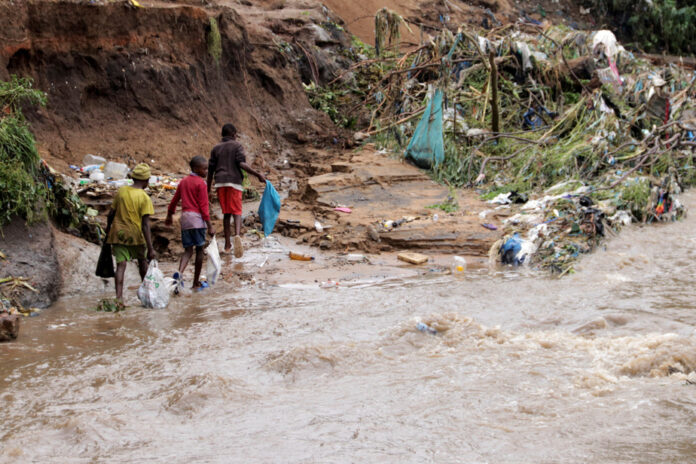(Blantyre) The death toll from Cyclone Freddy rose further on Wednesday in Malawi with at least 225 dead according to a new report, while the search for survivors continues in the south, epicenter of the disaster.
With exceptional longevity, Freddy had already hit southern Africa at the end of February, killing 17 people, before retracing his steps in early March. With less powerful winds, but carrying torrential rains, Freddy caused heavy flooding and deadly landslides in Malawi, where a state of disaster was declared. The police and the army were deployed.
“The death toll rose from 190 to 225, with 707 injured and 41 missing,” the disaster management department said in a statement. More than 88,300 inhabitants of this landlocked country among the poorest on the planet are now homeless. Schools and churches have been turned into emergency accommodation. A total of 165 centers have been opened.
“Floods are the biggest problem” and the destruction is “enormous”, Felix Washon, spokesperson for the Malawi Red Cross Society, which is carrying out relief operations, told AFP. “It is a challenge to reach those trapped with destroyed bridges and high water levels.” Rescuers found survivors perched on trees and rooftops.
A dozen health facilities were impacted by the destruction, according to a statement from the Ministry of Health.
President Lazarus Chakwera, returning on Tuesday after attending a UN conference in Qatar and due to visit disaster areas later in the day, described “a devastated nation”.
Pope Francis, during his weekly audience in St. Peter’s Square, said he prayed “for the dead, the wounded, the displaced” in Malawi hit by a “calamity”.
In the township of Chilobwe, near Blantyre, vulnerable houses made of bricks and earth were ravaged by massive mudslides.
But life is already slowly resuming its course, markets and businesses have reopened. Minibus taxi driver Daud Chitumba, 27, told AFP that he has mouths to feed: “I have two little girls and obligations. We have to rebuild our lives.”
Barely two days ago, in this same poor neighborhood, families and rescuers were digging in the mud, sometimes with their bare hands, in the hope of finding a loved one.
“There are dead here all around (…) everyone has lost someone,” said Fadila Njolomole, 19. She says that the day before, two people were carried away by the mud.
The NGO Doctors Without Borders, present on the spot, fears a jump in cholera cases in the country which is already fighting against a deadly epidemic of this disease.
The latest forecast is for Freddy to dissipate over land, but the rains are likely to persist for several more days.
In Mozambique, in the coastal town of Quelimane (Zambezia, center) about forty kilometers from the place where the cyclone landed, the rain has not stopped since the weekend.
Many houses are destroyed, roofs torn off and roads cut: “The city is almost an island”, according to Thomas Bonnet of the NGO Friends in Global Health, on the spot.
President Filipe Nyusi is due to visit the region during the day.
Freddy, who made an unprecedented crossing of more than 8000 km from east to west in the Indian Ocean, has been raging for more than 35 days. It is on the way to being classified as the longest cyclone in history by meteorologists.
Tropical storms and cyclones appear several times a year in the southwest Indian Ocean, during the hurricane season from November to April.


















